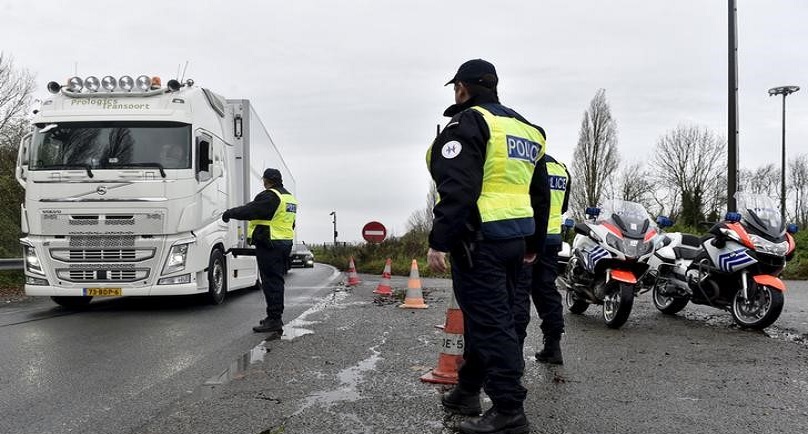Image:French police officers provide security as they control the crossing of vehicles on the border between the two countries, following the deadly Paris attacks, in Crespin, France, November 14, 2015. REUTERS/Eric Vidal
![]()
By Robert-Jan Bartunek and Barbara Lewis
BRUSSELS (Reuters) – Two of the attackers behind Friday’s assault on Paris were French nationals who had been in living in Brussels, Belgian officials said on Sunday as Prime Minister Charles Michel declared his nation was no place for “preachers of hatred”.
One lived in central Brussels and one in Molenbeek, a poor, immigrant quarter of the Belgian capital already viewed as a possible launch pad for Islamist violence due to links with previous attacks in France and elsewhere.
Michel said Belgium needed to do more to crack down on radicalisation and said the Molenbeek district’s links to violent extremism were a “gigantic problem”.
The federal prosecutor’s office said seven people had been arrested on Saturday afternoon and evening, with investigations centring on their possible involvement in Friday’s attacks.
French investigators are working with Belgian authorities who carried out a series of raids after two Belgian-registered cars were discovered in Paris, both suspected of being used by attackers. Both had been rented in the Brussels area at the start of last week.
“I do not want any preachers of hatred on Belgian soil! There is no place for them in Belgium,” Michel said on Twitter.
Interior Minister Jan Jambon pledged to “personally take care” of Molenbeek.
Security officials have said the Islamist who killed people at a Paris kosher grocery in January after the attack on the magazine Charlie Hebdo acquired weapons there. So too did the man overpowered in August on a Thalys high-speed train from Brussels to Paris before he killed anyone.
An alleged plot to attack Belgian police in January, which was broken up by raids in which two men were killed in the eastern town of Verviers, also had connections to Molenbeek. And a Frenchman accused of shooting dead four people last year at the Jewish Museum in Brussels also spent time in the area.
A prominent, Moroccan-born member of the group behind the 2004 Madrid train bombings that killed 191 was from Molenbeek.
DIVISIONS
International security experts have long seen Belgium, with its Muslim population, fragmented state structures resulting from divisions between French- and Dutch-speakers and a history as a market for firearms, as a dangerous breeding ground for violent extremism.
Of Belgium’s population of 11 million, half a million are Muslim. A representative body said it condemned the attacks in the strongest possible terms. “In these dramatic conditions, it calls for a united front against acts of barbarism,” the Muslim Executive of Belgium said.
Per capita, Belgium has contributed the highest number of foreign fighters to the war in Syria among European countries — more than 300 by official estimates a year ago.
Michel said Belgium’s central position in Europe and its small size favoured the movement of people “with hostile intent”. But he insisted his centre-right coalition, in power for a year, was tackling that.
The problem of young men returning radicalised, and with skills in handling automatic weapons remained, however, Michel said: “It’s always possible to slip through the net.”
Criticism of authorities in Brussels and Molenbeek reflects in part Belgium’s deep political and linguistic divide between Dutch- and French-speaking communities.
Interior Minister Jambon is a Flemish nationalist who highlighted the success of efforts to break Islamist radical groups in Antwerp and other cities in Flanders.
Only in largely French-speaking Brussels, and particularly Molenbeek, formerly a fiefdom of the French-speaking Socialist party, was there still a problem, he said.
Although Brussels, the home to the institutions of the European Union and to NATO, has experienced some violence, such as the killing of four people in an attack on a Jewish museum last year, Paris has appeared a higher-profile target, more clearly associated with the action in the war in Syria.
And, across borders normally unchecked, Paris lies barely three hours by road and less than 90 minutes by high-speed train from Brussels.
(Additional reporting by Alastair Macdonald and Phil Blenkinsop in Brussels and Mark Hosenball in Washington; editing by Philippa Fletcher)
Copyright 2015 Thomson Reuters. Click for Restrictions.


